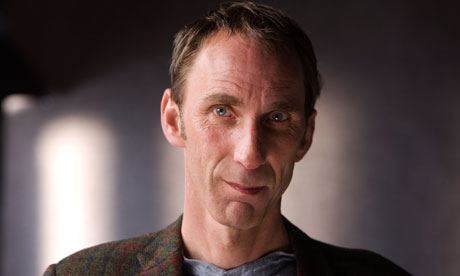
Umbrella, a stream-of-consciousness tour through 20th-century history and psychiatry, is Will Self's best book yet. Photograph: Murdo Macleod for the Guardian
Back in July the Booker judges announced a wide-ranging and defiantly highbrow longlist that wasn't afraid to ignore big names. Now we have a shortlist that, at a time of seismic change in the industry, rewards tiny publishers running on enthusiasm and strong coffee and, true to form, only two well-known authors remain.
Hilary Mantel's Bring Up the Bodies is a sequel of sorts to her 2009 Booker winner Wolf Hall, and Will Self's Umbrella is a bravura stream-of-consciousness tour through 20th-century history and psychiatry.
The debut novels are Jeet Thayil's Narcopolis, a hallucinatory portrait of opium smokers in Old Bombay, and Alison Moore's The Lighthouse, an unsettling tale of a man and his memories on a walking holiday.
The last two authors on the list, if unfamiliar, are not new: Tan Twang Eng, who conjures a Japanese garden in Malaya in The Garden of Evening Mists, has been longlisted before; and Deborah Levy, whose Swimming Home shows the middle classes falling apart on the French Riviera, has an impressive back catalogue.
The longlist was rich in comic exuberance from authors such as Nicola Barker, Michael Frayn and Ned Beauman. They've gone, to leave a group of books that are often downbeat in theme, suffused with ageing, addiction, depression and regret – not to mention the execution of Anne Boleyn.
Refreshingly, it was style that made these novels stand out. "It was the pure power of prose that settled most debates," said the chair of the judges. "We loved the shock of language shown in so many different ways."
So can Mantel win again for volume two in her grand, expanding project to reimagine Thomas Cromwell and his age? It would be a surprising decision, surely, from a judging panel that appreciates the shock of the new.
It could be said that the other frontrunner, Self's Umbrella, is not exactly novel either, treating the subject of modernism in high modernist style, with a loving debt to James Joyce. But it's the best book yet from an author whose position on the margins deserves to be embraced by the mainstream, and would make a fitting winner indeed.
Hilary Mantel's Bring Up the Bodies is a sequel of sorts to her 2009 Booker winner Wolf Hall, and Will Self's Umbrella is a bravura stream-of-consciousness tour through 20th-century history and psychiatry.
The debut novels are Jeet Thayil's Narcopolis, a hallucinatory portrait of opium smokers in Old Bombay, and Alison Moore's The Lighthouse, an unsettling tale of a man and his memories on a walking holiday.
The last two authors on the list, if unfamiliar, are not new: Tan Twang Eng, who conjures a Japanese garden in Malaya in The Garden of Evening Mists, has been longlisted before; and Deborah Levy, whose Swimming Home shows the middle classes falling apart on the French Riviera, has an impressive back catalogue.
The longlist was rich in comic exuberance from authors such as Nicola Barker, Michael Frayn and Ned Beauman. They've gone, to leave a group of books that are often downbeat in theme, suffused with ageing, addiction, depression and regret – not to mention the execution of Anne Boleyn.
Refreshingly, it was style that made these novels stand out. "It was the pure power of prose that settled most debates," said the chair of the judges. "We loved the shock of language shown in so many different ways."
So can Mantel win again for volume two in her grand, expanding project to reimagine Thomas Cromwell and his age? It would be a surprising decision, surely, from a judging panel that appreciates the shock of the new.
It could be said that the other frontrunner, Self's Umbrella, is not exactly novel either, treating the subject of modernism in high modernist style, with a loving debt to James Joyce. But it's the best book yet from an author whose position on the margins deserves to be embraced by the mainstream, and would make a fitting winner indeed.
No comments:
Post a Comment